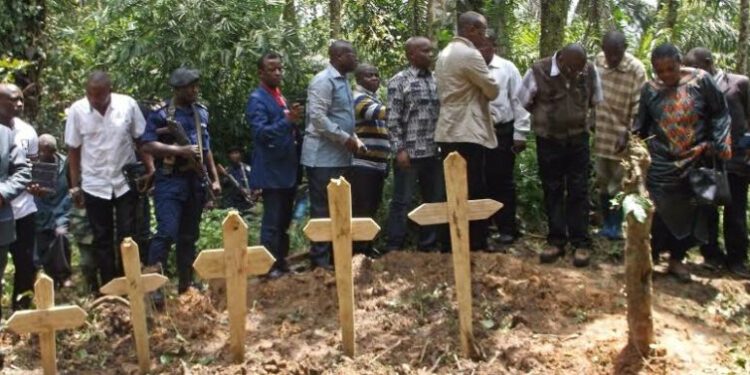At least 700 people have been killed since Sunday in intense fighting in Goma, the capital of the Democratic Republic of Congo’s North Kivu province, a UN spokesman said Friday.
Rwandan-backed armed group M23 has seized Goma, the biggest city in the country’s east, and is advancing south as volunteers and the struggling Congolese army attempt to beat them back.
“The World Health Organization and its partners conducted an assessment with the government” between Sunday and Thursday, said Stephane Dujarric, spokesman for the UN secretary-general.
They reported that “700 people have been killed and 2,800 people injured that are receiving treatment in health facilities,” he said.
Goma was taken after fighting earlier this week, and M23 fighters have vowed to march to the capital Kinshasa.
“If you look at the past, this has the potential of triggering a wider regional conflict,” UN peacekeeping chief Jean-Pierre Lacroix said during a press conference.
“Therefore it is of the utmost importance that all diplomatic efforts should be geared toward avoiding this and bringing about the secession of hostilities,” he said.
In Goma, “the situation remains tense and volatile, with occasional shooting continuing within the city,” Lacroix said, but added that calm has been “gradually restored.”
Lacroix said he is concerned about the fighters’ advance towards the south, towards the large city of Bukavu, in South Kivu.
“The information I have is that M23 and RDF are about 60 kilometers (37 miles) north of Bukavu,” he said, referring to the Rwanda Defence Force, and added that they “seem to be moving quite fast.”
One risk is that they might capture the Kavumu airport, also in South Kivu, he said.
The Democratic Republic of Congo accuses Rwanda of seeking to profit from the region’s wealth of minerals which are used in global electronics — a claim backed by UN experts which say Kigali has “de facto control” over the M23.
Rwanda denies this — and any military involvement — saying its primary interest is to eradicate a group composed of Hutu militants formed in the wake of the 1994 Rwandan genocide.
AFP











